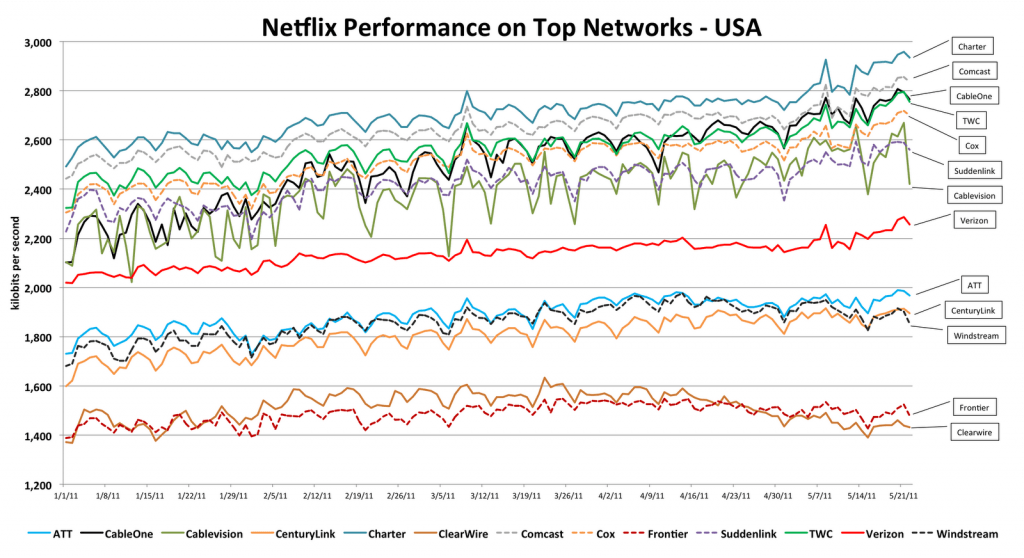Rogers Communications claims usage caps are not creating problems for customers, but if and when they do, the company says it will get rid of them.
Luiza Staniec, manager of public relations for Rogers’ Quebec and Atlantic Canada region, made that remarkable claim in an interview with the New Brunswick-based Times & Transcript.
“At this point there is a cap. It hasn’t really caused a problem,” Staniec said. “If the cap begins to affect users online, we will abolish it.”
At issue is Netflix’s popular streaming service, which opened for business in Canada last year. Consumers are embracing the $7.99 service which delivers unlimited streaming of the Netflix online library. But an increasing number of customers are discovering that while they can watch as much Netflix as they’d like, Internet Service Providers like Rogers have usage limits in place to keep online viewing under control.
Netflix told investors to expect $50 million in operating losses in international business this year, in part because growth in Canada is being hampered by stingy usage limits and high priced broadband. Once consumers get a broadband bill with overlimit fees attached, some are reconsidering their love affair with video streaming.

Staniec
Lindsey Pinto, communications representative for OpenMedia.ca, a consumer rights organization, says a regime of usage limits in place at most Canadian ISPs will ruin high bandwidth applications and services like Netflix, as consumers find them too expensive to use.
“It takes a lot of bandwidth to stream a movie or watch Netflix,” Pinto told the newspaper. “People will stop doing things that will bring them over the cap. There will be a disintegration from these services under this model.”
Staniec counters that Rogers offers higher usage cap plans (for more money) to accommodate Netflix viewing.
“If you watch a lot of movies, pick the package with the highest cap,” she says. “If you don’t watch too many, you don’t need the high cap.”
She added Rogers is willing to be flexible, adjusting caps “to suit the consumers.”
But last summer Rogers actually reduced the usage cap of its popular Extreme service plan from 95GB to just 80GB per month, one day after Netflix announced plans to enter Canada.
[Updated 5:12pm EDT — We heard from Ms. Staniec who wants readers to know she was respectfully misquoted by the reporter at the Times & Transcript:
“The correct message I conveyed was that our offer will evolve as customers needs/use evolves. The journalist added, ‘perhaps one day they will be abolished altogether.'”
Staniec would like our readers to know she herself made no statement about the issue of abolishing usage caps.]


 Subscribe
Subscribe




